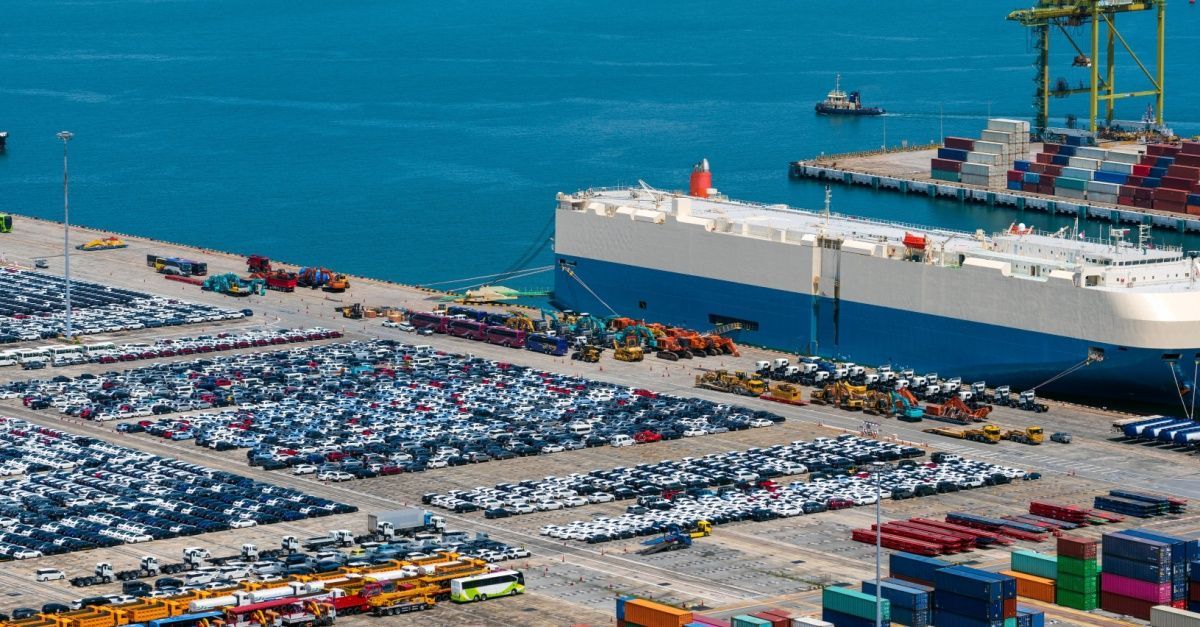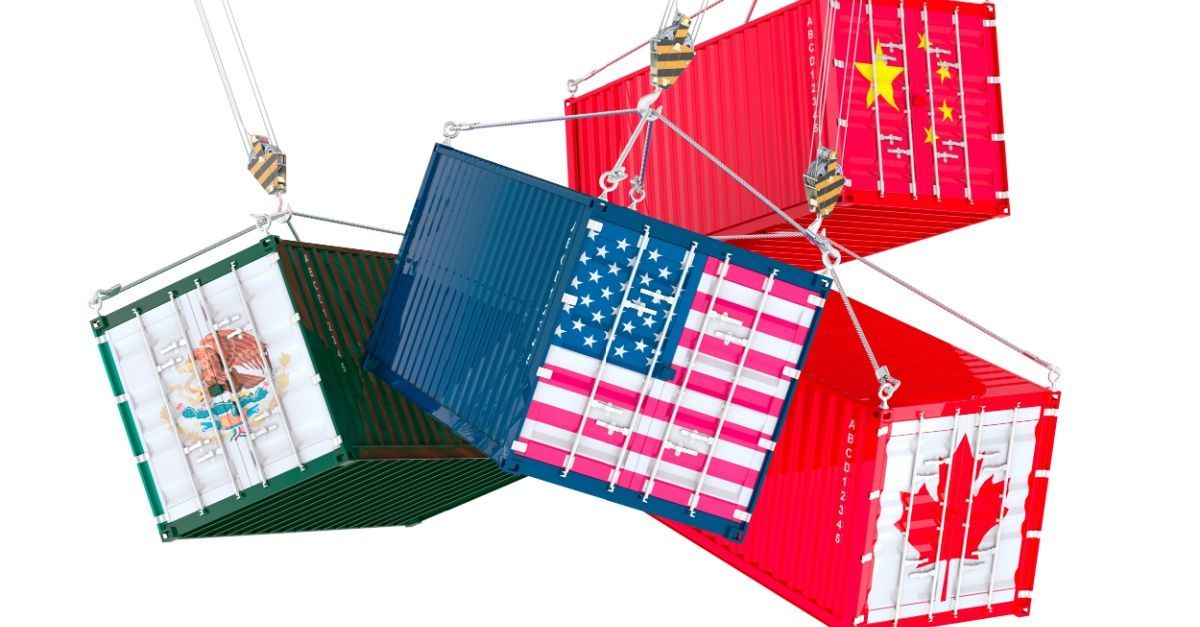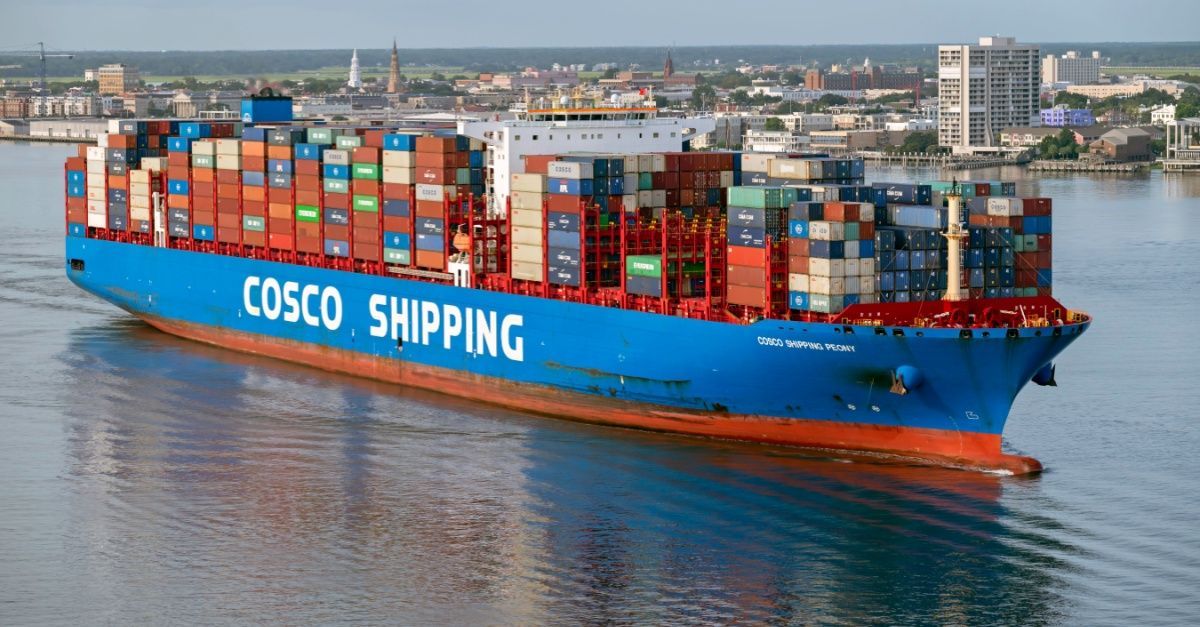The Steps to Find a Good Freight Broker
Blog Post CTA
We will get back to you as soon as possible.
Please try again later.
The Steps to Find a Good Freight Broker
Businesses that ship freight must contend with a lot of moving parts. Occasional late deliveries or damaged shipments are inevitable. At the same time, miscommunications and delays can amount to a sizable cost to a business. This is especially true when shipping food or beverage, or temperature controlled commodities. When businesses grow, these shippers might not have the time or resources to handle all their transportation. But delivering products on time is critical to a company’s success. Growing businesses often depend on freight brokers and third party logistics partners to help manage their supply chain. In North America, there are thousands of logistics companies, but what factors make a company good, and why should shippers use them? This article takes a look at what makes up a good freight broker, and offers tips for shippers in selecting a provider to take care of their transportation.
What is the Role of a Modern Day Freight Broker?
Shippers know that a freight broker acts as an intermediary between them and the carriers. Their primary role is to build a dense carrier network and relationship that offers dependable service year round. Brokers sources and guarantees capacity from a network of reliable carriers and then manages the operations required to fulfill the shipper’s supply chain. Freight brokers also handle the communication between the shipper and the carrier, and ensure that the load gets picked up on time and
arrives when it should at the final destination
Shippers like working with freight brokers because it eliminates the need to manage their own transportation. Instead of hunting for their own capacity, vetting carriers, negotiating for rates, tracking the freight, and
planning or optimizing routes, companies can outsource those tasks to a transportation provider who handles their entire logistics.
Freight brokers use their industry experience to improve delivery times, optimize a transportation strategy, and prevent damage to freight. They can usually offer better rates because they handle large volumes of freight from multiple shippers, and pass the savings on to their customers.
What does a “Good Freight Broker” Provide for Shippers?
3PLs and the freight brokers who work for them offer a large incentive for shippers due to their ability to source capacity from a large network of carriers. Unfortunately, companies are sometimes wary of using brokers because they assume the service is more expensive than using an asset-based company. This perspective is not necessarily true, however, because sometimes relying on a single carrier can backfire and become more expensive in the long run, especially when the provider lacks capacity, or if and when their rates increase.
This bias might cause shippers to miss out on lost opportunities to optimize their freight network. An over reliance on one transportation procurement strategy potentially causes companies to miss out on transportation providers who offer a better price and service. It can also leave organizations
vulnerable to downturns and economic shocks. Over time, these costs can add up. Here’s a few reasons why shippers should consider freight brokers for their next loads.
Optimizes transportation
A freight broker’s sole job is to manage transportation. They maintain a network of vetted carriers and spend their work days finding optimal schedules and routes for shipper clients.
Cut costs
Freight brokers help shippers cut their transportation costs. By creating a large network of carriers, they can build shipping capacity on shipping lanes advantageous for their customers and provide the most competitive rates on a shipper’s behalf.
Handles Traffic Management
When a shipper books their own loads, they must negotiate contracts, monitor transportation and track and trace their carrier to ensure that the truck arrives on time.. These operational tasks can become overwhelming, especially for carriers with high volume freight, and that’s why most companies use 3PLs and their broker partners to help manage their freight.
Maintain Carrier Information
Shippers who manage their own freight are not just responsible for securing their loads. They also have to keep up with a carrier’s regulatory compliance and licensing. In contrast, 3PLs employ the manpower and technology needed to monitor compliance on a shipper’s behalf and streamline this process so it’s not a concern.
Provides Different Transportation Modes
Does a shipment need to be transported via dry van or bulk shipping? What about cold chain requirements? Should the load be moved via LTL? The benefit of using a freight broker is that some of them specialize in various types of transportation, making it easy to ship single pallets, partials, or full truck loads.
The Seven Steps to Select a Good Freight Broker
Look at FMCSA Data -
The first step towards finding a reputable freight broker should be to check
FMCSA data. A reputable brokerage will have a license from the FMCSA - this ensures the brokerage has been verified, and takes safety and professionalism seriously. Licensure can change over time, so it's important to check back in periodically.
Check Insurance and Broker Bonds -
It’s equally important to make sure a freight broker is bonded and insured. This is what protects shippers in the event that cargo gets lost or damaged during transportation. Brokers who operate without insurance can even incur criminal or civil penalties in certain cases. If a freight broker has not maintained their insurance and other documentation, that will eventually catch up to them, and by extension, to their customers. It adds risk and damages a shipper’s reputation.
Look For Adequate Experience -
Try to work with a freight brokerage company that has been in operation for at least three years. That’s the amount of time it takes to gain experience and develop a large network of industry contacts needed to build out an adequate carrier pool. As an added bonus, experienced freight brokers will have more industry relationships and customer feedback to draw from. If the brokerage company is newer, find out if the owner has experience working for a different freight broker.
See if a Broker is Easy to Work With -
How easy or difficult is it to tender loads to a broker? If it takes a long time to get a load assigned to a carrier, that spells deadweight and wasted time for a business. Another thing to consider is the tendering process. Do shippers send loads to a broker via a platform? How much time is required on the phone? The whole point of working with a freight broker is to make transportation easier.
Find Out if a Broker Offers Multi-Modal Transportation -
Most brokerages will procure transportation via truck. But some also offer intermodal, or even multi-modal options. A brokerage that offers full truckload, LTL, middle mile, and intermodal transportation will have the flexibility to move freight in a way that does not compromise it. It’s also useful if capacity in a particular mode is limited at a given time.
Look at the Metrics -
Data doesn’t lie. A prospective brokerage’s credit score reveals how well they manage money and, by extension, their business. A low score (or a lot of debt) suggests a broker may make late payments to carriers or is otherwise irresponsible. Brokerages should also be open about how long it takes to pay their carriers. 25 - 30 days is typical across the industry - more than that isn’t a good sign.
Read Reviews -
Reviews from both shippers and carriers provide perspective on a freight broker’s professionalism. If a brokerage has mostly five star ratings, it indicates that they have overcome obstacles to provide value to their clients. More than a few one star ratings, on the other hand, is a red flag.
Is a Freight Brokerage Right for Your Freight?
There’s no one industry that requires a freight broker’s services more than others. Each vertical and company operates differently, and has different needs. The biggest indicator that it might be time to find a broker is that a company has started to wonder if having a transportation partner would
help operations or improve the bottom line.
Shippers turn to freight brokers to reduce transportation costs and time spent procuring transportation. They may struggle with their current transportation strategy, but lack the bandwidth to configure a new one. Some shippers turn to a freight broker when nothing is wrong at all, but they want to further optimize transportation all the same. By taking shipping operations off the table, freight brokers provide an essential service to shippers. Shippers look for brokerages that have a solid framework, like Entourage Freight Solutions. Entourage has both the technology and the logistics network to help customers move freight promptly, in the right lanes, and with the right equipment. Entourage specializes in hauling food and beverage, temperature controlled commodities, and with expedited shipping.
Give Entourage Freight Solutions a call today to take transportation needs off the table, and ensure consistent on-time delivery.









